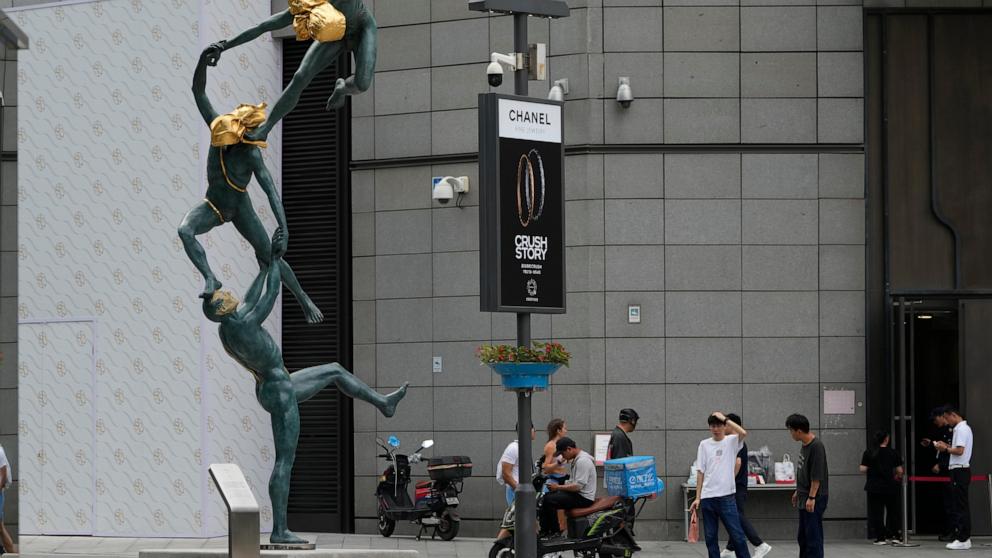China’s Politburo Endorses Strategy to Boost Consumer Spending and Revamp Economy Amid Global Uncertainties
In a crucial meeting, China’s Politburo, the ruling Communist Party’s most powerful body, has reaffirmed its long-term economic strategy, emphasizing the need to stimulate consumer spending and phase out unproductive companies to establish a "survival of the fittest" environment. This move comes as the country faces significant economic challenges and mounting global uncertainties ahead of the U.S. presidential election in November.
Tackling Economic Vulnerabilities
Following the meeting of the Politburo’s 24 senior leaders, a statement acknowledged the tough road ahead, citing "many risks and hidden dangers in key areas." The leaders stressed that reform and stability tasks for the second half of the year remain "very heavy." This caution likely points to the global economic headwinds and internal challenges that China must navigate in the coming months.
Renewed Focus on Consumer Spending and Market Confidence
To counter these challenges, the Politburo has pledged unspecified measures to restore confidence in financial markets and boost government spending. This promise echoes the priorities set during a broader meeting of senior party members earlier in July. As part of those efforts, China’s central bank lowered several key interest rates, and the government doubled subsidies for electric vehicles bought to replace older models, aiming to spur economic growth.
Building a Stronger Social Safety Net
Addressing low- and middle-income groups, the Politburo reiterated its commitment to building a robust social safety net that would reduce the need for families to save excessively for healthcare, education, and elder care. However, the statement fell short of providing specific measures to achieve this goal.
Julian Evans-Pritchard of Capital Economics noted, "This sounds promising on paper. But the lack of any specifics means it is unclear what it will entail in practice." He also pointed out that the party’s plans to improve fiscal policies are "short on new ideas," especially considering burgeoning local government debt.
Encouraging Efficient Consumption and Production
The Politburo emphasized speedy implementation of existing policies. Key initiatives include encouraging families to trade in old cars and appliances and redecorate homes through tax incentives and subsidies. These measures align with goals to improve energy efficiency and reduce fossil fuel consumption.
China’s economy saw a 4.7% annual growth rate in the last quarter, following a 5.3% increase in the year’s first three months. However, some economists suggest these figures may overstate actual growth, masking deeper, long-term weaknesses that necessitate broader reforms.
Supporting High-Tech and Fast-Growing Industries
Under President Xi Jinping, China has focused on developing advanced technology industries, such as electric vehicles and renewable energy. While these sectors have propelled China to a leadership position in some areas, they have also led to oversupplies, affecting manufacturers, especially in solar panel production.
The Politburo statement underscored support for "gazelle enterprises and unicorn enterprises," or fast-growing and high-tech startups. At the same time, it warned against "vicious competition" and stressed the need to eliminate "backward and inefficient production capacity."
Addressing Property Sector Challenges and Rural Support
To resolve a crisis in the property sector, the Politburo has encouraged apartment purchases to provide affordable housing and adapt monetary policy to spur spending and investment. Despite these efforts, the statement highlighted enduring concerns, particularly the need for increased support for the countryside and farmers to prevent large-scale poverty resurgence.
The statement also condemned the widespread resistance to new initiatives, describing "formalism and bureaucracy" as "stubborn diseases" that must be eliminated. It warned against resolving economic disputes through "administrative and criminal means."
Market Reactions and Outlook
Despite these comprehensive policy outlines, Chinese markets have shown limited enthusiasm. On the day of the statement, the Hong Kong benchmark Hang Seng index fell by 1.4%, and the Shanghai Composite index dipped by 0.4%. Over the past three months, the Hang Seng has decreased by 4.3%, while the Shanghai index has dropped by 7.3%.
In summary, China’s Politburo has laid out an ambitious economic agenda focused on consumer spending, high-tech growth, and efficiency. However, the lack of detailed plans and immediate market skepticism suggest a challenging path ahead as China navigates both domestic and global economic uncertainties.
For more information, visit the official website of the Chinese government.
